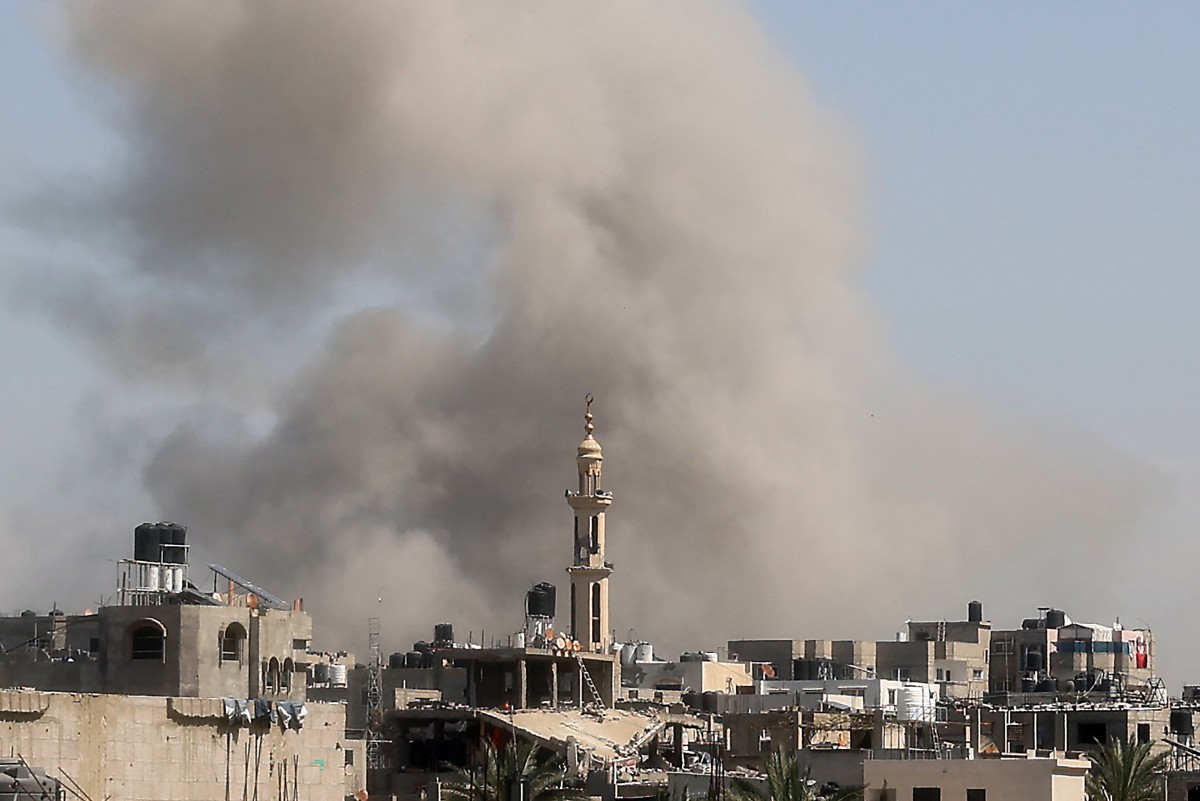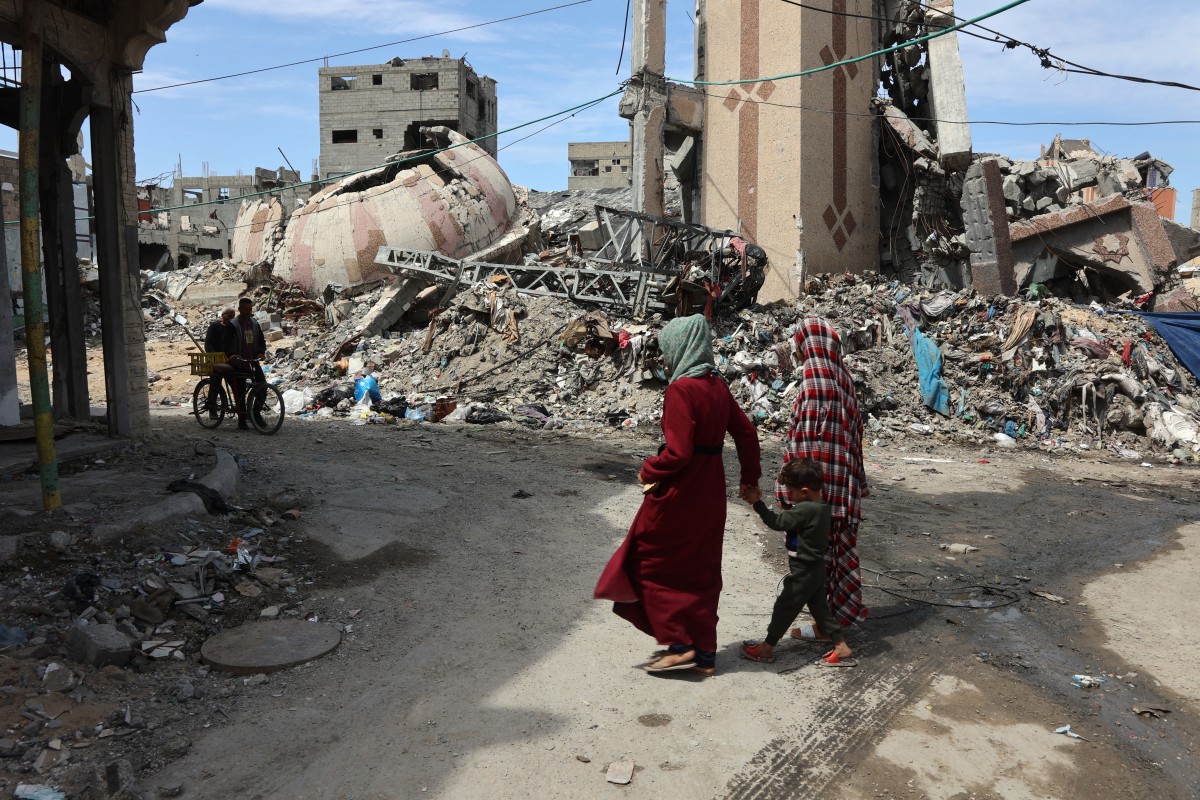Doha, Qatar – A top Hamas official said on Saturday the group approved a new Gaza ceasefire proposal put forth by mediators, urging Israel to back it but warning the Iran-backed group’s weapons were a “red line”.
Netanyahu’s office confirmed it had received a proposal from mediators.
“Prime Minister Benjamin Netanyahu, yesterday, held a series of consultations pursuant to the proposal that was received from the mediators,” his office said in a statement.
“A few hours ago, Israel conveyed to the mediators a counter-proposal in full coordination with the US,” it said without elaborating.

A day earlier, senior Hamas official Bassem Naim had said talks between the Palestinian Islamist movement and mediators over a ceasefire deal were gaining momentum as Israel continues intensive operations in Gaza.
Palestinian sources close to Hamas had told AFP that talks began Thursday evening between the militant group and mediators from Egypt and Qatar to revive a ceasefire and hostage release deal.
The fragile truce that had brought weeks of relative calm to the Gaza Strip ended on March 18 when Israel resumed its bombing campaign across the territory.
The talks in Doha started a day after Israeli Prime Minister Benjamin Netanyahu threatened to seize parts of Gaza if Hamas did not release hostages, and Hamas warned the captives would return “in coffins” if Israel did not stop bombing the Palestinian territory.
Hamas releases new video of Israeli hostage in Gaza
Hamas’s armed wing on Saturday released footage showing an Israeli hostage in Gaza calling on the government to secure his release, the second such video shared by the militant group within days.
AFP could not verify when or where in the Gaza Strip the video was recorded.
Bohbot was seen along with another captive, Yosef Haim Ohana, in a video released on Monday by the Ezzedine Al-Qassam Brigades, Hamas’s armed wing.
In that footage, the two men spoke about the dangers they have faced since Israeli air strikes on Gaza resumed on March 18, after more than two months of truce.
In Saturday’s video, Bohbot again says the ongoing bombardment could cost him his life, asking to be reunited with his wife and son.
Since Israel renewed its offensive in Gaza, Hamas has warned that the military operations could put the hostages in danger.
Of the 251 hostages taken during Hamas’s 2023 attack on Israel, 58 remain in captivity in Gaza including 34 whom the Israeli military says are dead.
‘Let’s reach a deal’
Israel’s renewed attacks, which on Saturday left nearly a dozen people dead in Gaza according to the civil defence agency, followed weeks of deadlock in talks to extend the ceasefire that began on January 19.
But on Friday, a senior Hamas official said that talks between the group and mediators over a ceasefire deal were gaining momentum even as Israel continued its offensive in Gaza.
“We hope that the coming days will bring a real breakthrough in the war situation, following intensified communications with and between mediators in recent days,” Bassem Naim, a member of Hamas’s political bureau, said in a statement.
On Saturday evening, thousands of Israelis protested in the country’s commercial hub Tel Aviv, calling on the government of Prime Minister Benjamin Netanyahu to agree to a ceasefire deal.
Some former hostages, relatives, and family members of captives held in Gaza addressed the rally.
“Soon, Israel will celebrate Passover … I wish for us to be able to hold the seder night with the hostages, who must return so that we can truly celebrate a real festival,” said former hostage Yair Horn, whose brother Eitan is held in Gaza.
“Prime Minister … let’s reach a deal without fighting.”
The week-long Jewish festival to be celebrated in April, also known in Hebrew as the “holiday of freedom”, is traditionally observed with a seder: a holiday feast when families eat symbolic food and read the Haggadah.
Israelis have also stepped up protests in recent days against parliament’s approval of a law expanding the power of politicians over the appointment of judges.
The law is part of Netanyahu government’s overall judicial reforms package that sparked one of the largest protest movements in Israel’s history in 2023 before being overtaken by the war in Gaza.
Hezbollah leader says Israeli attacks on Lebanon unacceptable
Hezbollah leader Naim Qassem said Saturday that he could not accept continued Israeli attacks on Lebanon, a day after its first strike on Beirut since a November ceasefire.
Hezbollah has denied involvement in the rocket fire.
Israeli Defence Minister Israel Katz swiftly hit back, threatening fresh attacks on the Lebanese capital to punish rocket fire on northern Israel, regardless of the perpetrator.
“If there is no calm in Kiryat Shmona and communities in Galilee (northern Israel), there will be no calm in Beirut,” he said.
Israel has continued to carry out strikes on southern and eastern Lebanon in the months since the ceasefire, striking what it says are Hezbollah military targets that violated the agreement.
Following the Beirut strike, Hezbollah cancelled a rally it had been due to hold in the southern suburbs on Friday.
“It is still possible to resolve the situation through political and diplomatic means, but… there is a limit to everything,” Qassem warned, calling on the Lebanon state to act.
If “the Lebanese state fails to achieve the necessary results politically, we will be forced to resort to other options,” he added, without elaborating.
Under the terms of the ceasefire, Israel was due to complete its withdrawal from Lebanon by February 18 after missing a January deadline, but it has kept troops in five places it deems “strategic”.
The agreement also required Hezbollah to pull its forces north of the Litani River, about 30 kilometres (20 miles) from the Israeli border, and dismantle any remaining military infrastructure in the south.
The Lebanese army has deployed in the south as the Israeli army pulled back.








